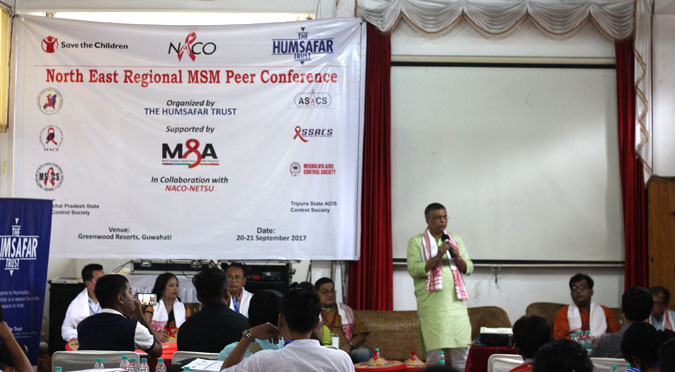Seeking progress against homophobia in India
Colin Stewart is a 45-year journalism veteran living in Southern…

A recent conference in India encouraged people from the LGBTQ community to engage with journalists and lawyers as a means of combating homophobia and reducing violations of LGBTQ people’s human rights.
As reported in UNAIDS’s Equal Eyes recap of the world’s LGBT news, with modest editorial changes:
In India, the Humsafar Trust hosted a regional conference that highlighted the role of media in LGBTQ issues, including confronting or spreading homophobia, reporting on violence, and sensitizing the community.
Ashok Row Kavi, an activist for sexual minorities and founder of the Humsafar Trust, said, ‘There is a general feeling of homophobia in the society especially in small town India. The press is not sensitive to a lot of issues and many a times don’t know how to handle stories related to the LGBTQ community. As a gay man, I think it is our job to educate and work towards sensitizing the press.”
Many from the LGBTQ community across the eight Northeastern [Indian] states were part of the event. Founder of GLOW and a doctor by profession Rahul Medhi was present during the occasion. Rahul said, ‘I started GLOW back in 2007 for people who were scared to come out in the open and reveal their identities.’
GLOW is a club based out of Guwahati, working towards discussing and sharing problems of the LGBTQ community. They organize film screenings, slam poetry and various other activities over the weekends. “GLOW is basically a social initiative; we call it an open house. What we do is not structured but we give the space out for discussions. So one’s free to share their experiences,” one participant said.
“Initially, we would go to restaurants and clubs but that turned out expensive and we also realized many were not comfortable talking about their issues openly. That was mostly because people are so insensitive here, just because one is gay, they make you feel like they’ve come to rob a bank or something,” he added.
Related articles:
- Court paves the way to overturning India’s anti-gay law (August 2017, 76crimes.com)
- India: More LGBTI-friendly, still contradictory (March 2016, 76crimes.com)
- Archive of this blog’s articles about India




